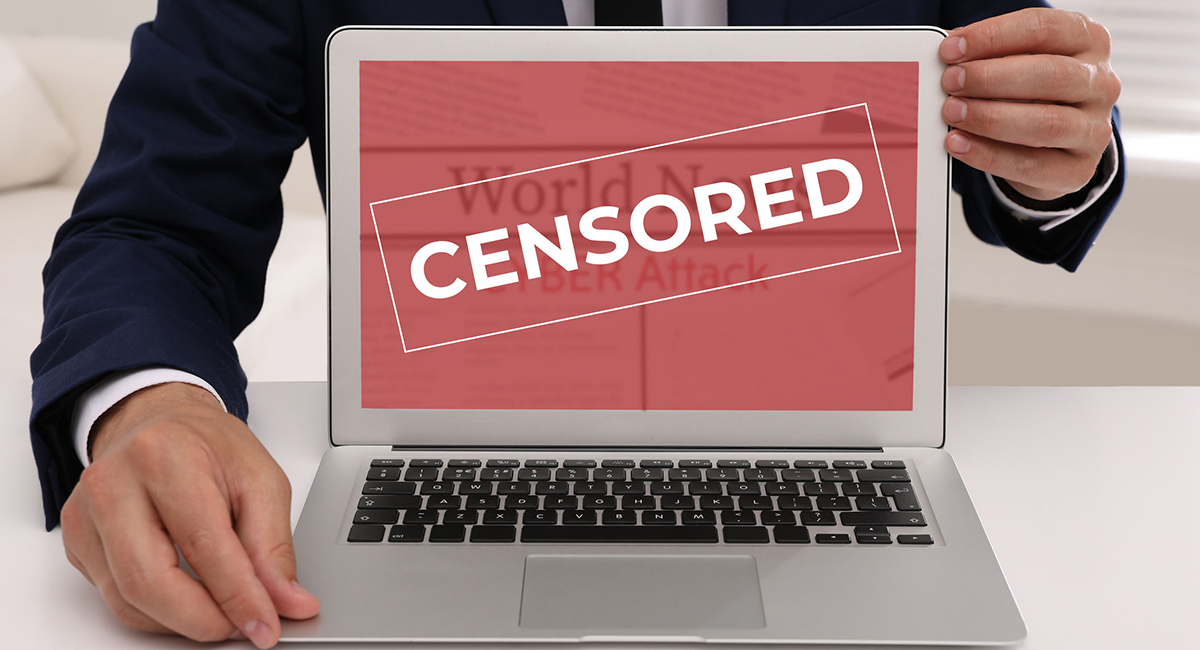The Supreme Court just heard arguments in Murthy v. Missouri, a case that raises important First Amendment issues and exposes government censorship efforts.
Last October, when considering a lower court order prohibiting further censorship, Justices Samuel Alito, Clarence Thomas, and Neil Gorsuch described the case as “a coordinated campaign by high-level federal officials to suppress the expression of disfavored views on important public issues.” Indeed, the case highlights troubling tactics of the Biden administration that are better suited to the Ministry of Truth in George Orwell’s fictional totalitarian state, Oceania, in his frighteningly prescient novel, 1984.
There is little dispute about the facts of the case. In essence, Biden administration officials pressured or coerced social media companies to censor posts that challenged the administration’s position on pandemic lockdowns, the safety of vaccines, the COVID–19 lab-leak theory, election fraud, Hunter Biden’s laptop, and a host of other issues. Court records show that the White House specifically targeted COVID skeptics Alex Berenson, Tucker Carlson, and Robert F. Kennedy Jr.
Messages demonstrate the White House demanded that certain posts be taken down “ASAP” and suggested that bi-weekly meetings with social media companies would help in suppressing “disinformation.” If a company pushed back, administration officials threatened anti-trust action and other forms of liability. Biden’s team even went so far as to claim Facebook and other platforms were “killing people” by not aggressively censoring certain information.
After Biden’s comments, Facebook deplatformed multiple users and began providing detailed reports of its efforts to obey White House directives. Ultimately, companies accepted the Centers for Disease Control and Prevention as the final arbiter on what was acceptable COVID-19 information and what was disinformation.
Court records show that “Facebook content-mediation officials would contact [the CDC] to determine whether statements made on Facebook were true or false,” and “Facebook would remove and/or censor claims the CDC itself said were false.”
The FBI also got in on the action. The FBI averred to the social media companies that it was combatting foreign influence. Instead, it was targeting domestic posts promoting stronger border security measures or the Second Amendment. In the case of Hunter Biden’s laptop, the FBI warned of the dangers of foreign hackers and data dumpers despite knowing that the laptop and its contents were real.
Rather than apologizing to the public for its censorship activities, the Biden administration is defending them.
In oral arguments before the Supreme Court this week, the Biden administration justified its actions by arguing that the social media platforms are private entities that ultimately chose to remove posts or deplatform people. The First Amendment, which protects free speech, applies only to government actors. Hence, the administration denied that its persuasion and suggestions were the proximate cause of the censorship. “So long as the government seeks to inform and persuade rather than to compel,” the administration argued in its brief submitted to the court, “its speech poses no First Amendment concern—even if government officials state their views in strong terms, and even if private actors change their speech or conduct in response.”
Under the law, the government cannot evade responsibility when it has significantly encouraged an action. In other words, the government may not meddle in the editorial decisions of the platforms or direct them on how to exercise editorial discretion. Thus, the question will come down to whether the government was just seeking to inform the social media companies or whether the government compelled or coerced action (or at least meaningfully controlled the private actors).
If nothing else, the facts in the case are ugly and show a gross abuse of power by federal officials.
No matter what the outcome, the plaintiffs—two states and various people affected by the government’s censorship campaign—deserve high praise for bringing these matters to light. The case record demonstrates the heavy-handed tactics and arrogance of administration officials in suppressing speech.
In his opinion in Whitney v. California (1927), the great Supreme Court Justice Louis Brandeis observed that the remedy for allegedly false information and viewpoints “is more speech, not enforced silence.” The Biden administration enjoys the largest bully pulpit in the nation but declined to combat opposing opinions with more speech. It chose threats and hectoring in an effort to enforce silence.
Hopefully, the Supreme Court will rebuke the government for this conduct. Otherwise, Oceania might be a better name for today’s America.












